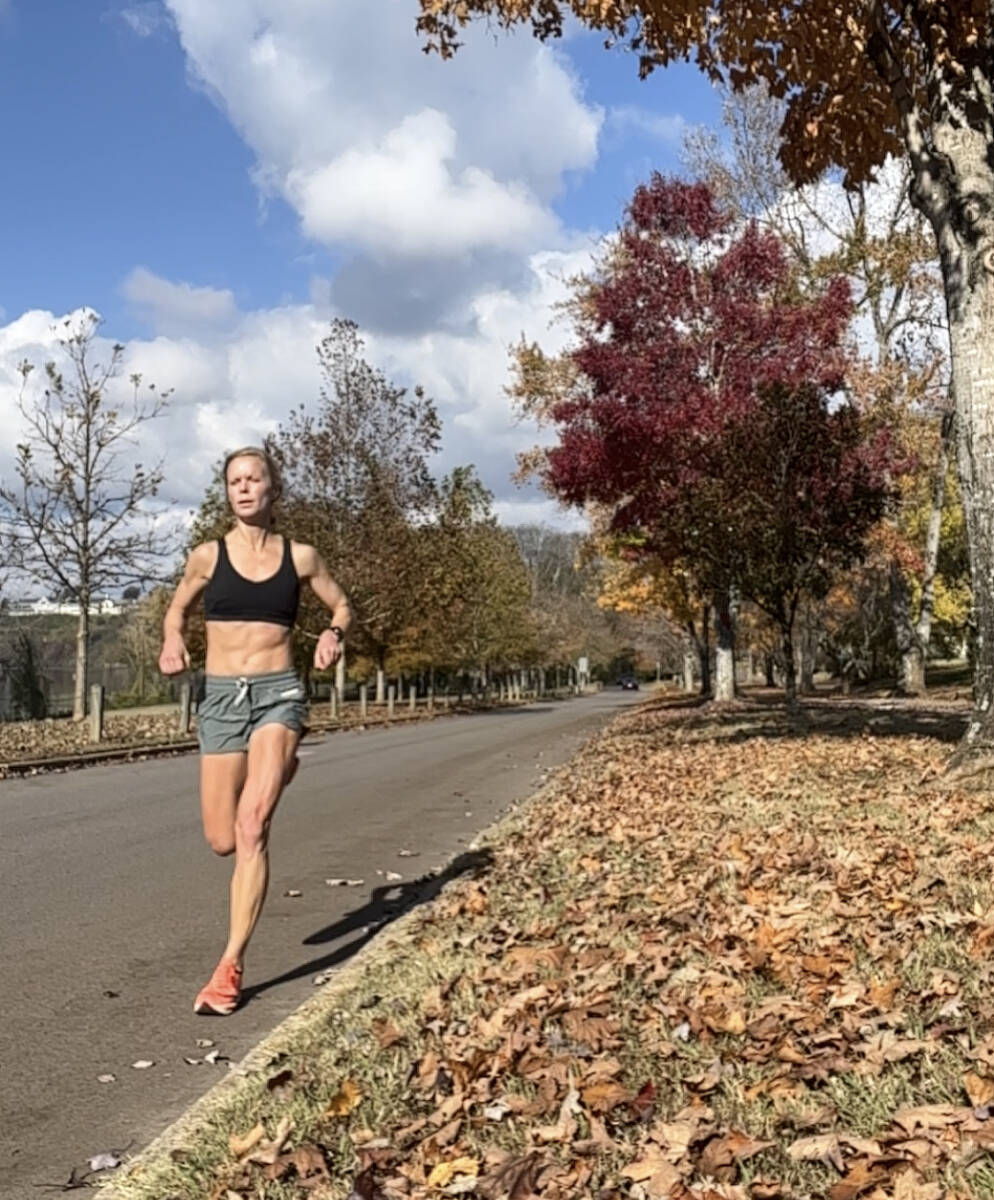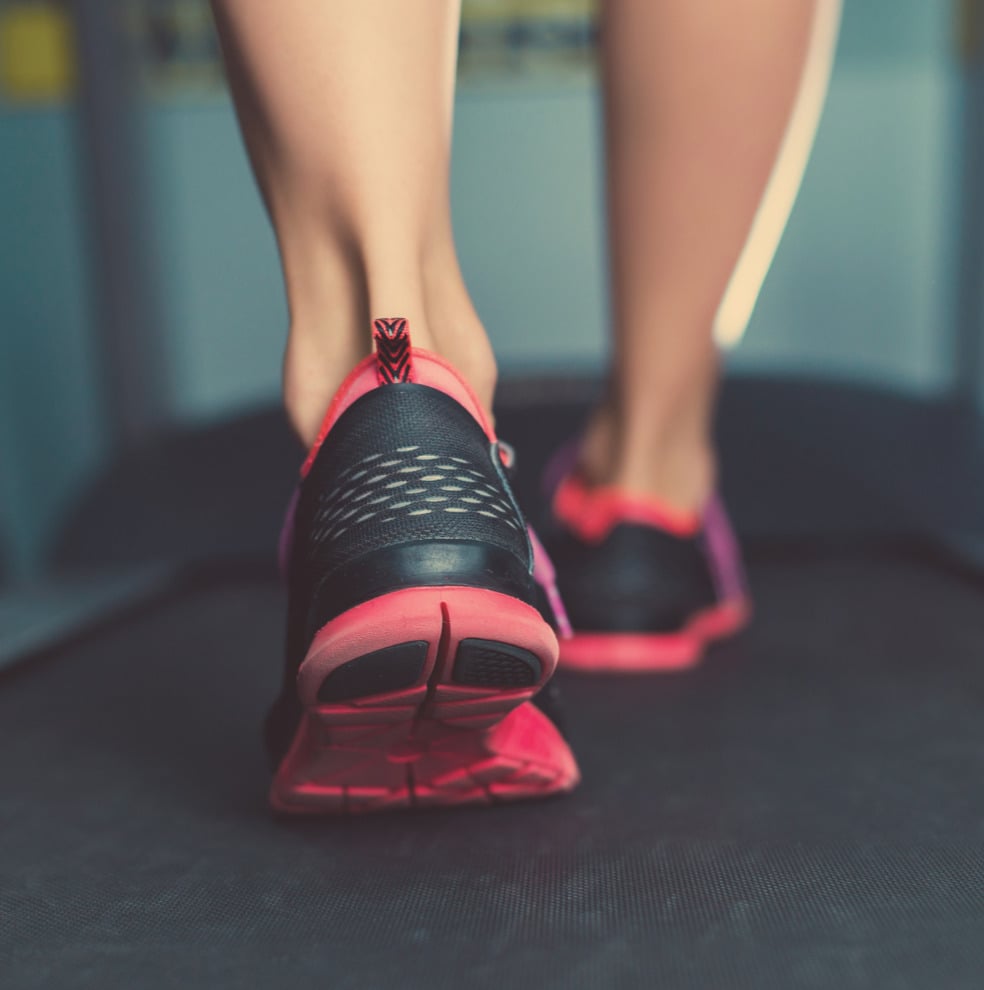Should You Run Ditch Your Running Watch?
A GPS running watch uses satellites to track your distance and speed. Technological advances that harness other data sets like heart rate and population data have also allowed running watches to share information such as estimated Vo2 max, training status, and race prediction times. Runners wear running watches to collect concrete data that can be used to help adjust a run or future runs.

But, often, these technological advancements are so big, and these running watches supply so much information that it can overcomplicate one of the simplest human acts: running.
Since I’ve returned to running after my long injury-break, I’ve become keenly aware of the negative feedback cycle that looking at my GPS running watch can kickstart. If I’m feeling bad, I’ll look at my watch and feel worse. If I’m falling off pace, I’ll start checking my watch frequently, fulfilling a prophecy. Even if I’m feeling good, running too fast according to my watch will trigger anticipatory feelings of fatigue, and negative thoughts will spiral out of control.
So, what to do? If you’re debating running without a GPS watch, or running without looking at your watch, I’ve done research to hopefully help you decide what to do.
Table of Contents
- Five Reasons to Not Wear a Running Watch
- Five Benefits of Running Without a Watch
- Five Tips for Weaning Yourself Off a Run Watch
- Who Should Run With a Watch?
- Should You Ditch Your Watch?
Five Reasons to Not Wear a Running Watch
- It doesn’t serve the end goal. For example, you might be training for a certain race distance and your goal is to finish, not to hit a certain time or pace. Even if it’s your 500th race at that distance, taking pace out of the equation will narrow your focus on hitting that broader goal of finishing.
- You want the challenge/freedom of relying only on intuition. If you desire to grow in trust in yourself and your intuition as a runner, get to know your RPE without a watch. Running without a GPS watch is the perfect opportunity to practice and perfect this skill.
- You are sick. When we fight illness, our bodies function differently. Factors such as HR and fatigue can show up on your watch in negative ways (at what rate we hit our V02 Max). The data overload of our watches can spur negative feedback cycles in our brains and cause doubt that negatively affects us on race day. Not wearing a watch when you are sick also gives you a better opportunity to listen more closely to your body. The closer you listen, the less likely you are to overdo it.
- You need to conserve mental energy. Not glancing at your watch during a race saves mental energy that you convert toward focus. Not to mention, constantly trying to do the mental math of how fast to pace to make up for the lost time is exhausting. Sometimes ignorance is bliss.
- The pros are doing it! In 2023, Emily Sisson broke the American record at the Houston Half Marathon without a watch, and Andrea Pomaranski (who placed 7th at the Houston Marathon) also didn’t look at her watch during her race.
In 2019, Trevor Hofbauer made headlines by winning the Canadian Marathon Championships without the use of a watch. These are just a few examples of how professional runners over the years have soared to success without the extra data.
Five Benefits of Running Without a Watch
- Improve pacing. Learning and internalizing your pace and effort on feeling alone creates necessary biofeedback for your body to make necessary adjustments on the go. Instead of being reliant upon your watch to tell you your effort pace is too hard or too easy, you’ll know by feeling alone.
- Relieve race anxiety and pace anxiety. Runners are naturally competitive and are constantly trying to outdo themselves. Functioning at this high level all the time is a recipe for burnout and can hinder performance. Running by feel can allow you to run true to how you feel.
- Stop negative feedback cycles. Zoning in on GPS running watch data like pace or heart rate can spur negative thought cycles that hurt performance. It can also make you anticipate feeling a certain way—even if you don’t!
- Focus only on what you (and not others) are doing. Sharing your stats is a great way to show off something you are proud of, but constantly comparing your numbers to someone else’s can invite unnecessary judgment and doubt about your own abilities. No two runners are the same.
- Run for the joy of it. What is it that you love about running? You may answer this question with “I love the feeling of speed” but I doubt you’ll ever answer with “I just really love it when I hit a sub-6 min/mi pace during my 800-meter rep.”
The more technical we get with our running, the better we can understand what we need to improve, but, with all things, it’s a balance. When we focus too much on the small details, we miss the beauty of the bigger picture. There have been many times I was happy with a run but then felt defeated after analyzing the stats.
Five Tips for Weaning Yourself Off a Running Watch
Deciding to run without a watch is your call. For me, I think I will do something in the middle where I don’t use a watch on some of my training runs but not all.
Dr. Perlus recommends this strategy. “Try periodically running without a watch with the intention of letting your body lead. Play around with your pacing by finding a comfortable pace, speeding up to notice your breath and other physiological responses, then slowing back down.”
Use the quiet to pay attention to your running technique. Experiment with pacing and see what works to help maintain or regain your breath. Try on different mental strength techniques like disassociation (tuning out) or zoning in (what to you hear, see, taste, feel).
“These running exercises are all executed without any devices and brings you back in touch with the mind/body connection,” explains Dr. Perlus.
If you need help ditching the crutch of the watch, here are some tips:
- Look at your watch only at mile splits. Check out your watch settings and make sure it is set to chime or vibrate every mile split. When you hear or feel it go off, quickly look at your split time and then refocus your eyes on the road ahead.
- Change your watch face so all you see is total distance. Taking your pace per mi/km off your main watch face can lessen the temptation to dwell on how fast you are going (or not going.)
- Wear your watch upside down. This position may not be ideal for tracking HR but having to twist your arm every time you need to look at your watch will curb the temptation to constantly keep an eye on it.
- Only wear your watch on runs you really need to record data. Leaving the watch at home will encourage you to remember why you love to run!
- Play the guessing game. The ultimate goal is for us to become good at pacing so that we can use our running watches as guides rather than rulers of how we feel about our running. So, run at various paces (easy, moderate, hard) and guess your pace before checking your GPS watch. Do this frequently throughout your training to tune into how you feel when running.
Who Should Run With a Watch?
Running with a watch can help you achieve your pace or distance goals. Running watches can help us fine-tune our speed and training volume so we can get after our goals. They can help us see progress and help us stay on track.
Specifically, you should run with a running watch if:
- The data will help you mentally push or pull back in training and racing.
- The information helps you see your momentum and stay motivated.
- You have a specific goal such as a specific race time goal or mileage goal.
- You need to keep your HR in a certain zone.
- The data helps you perfect your pacing.
- You are running in a new location and don’t have a route pre-planned.
- The data is helpful in corroborating how you already feel.
- You’re just doing it for the Strava post. (Let’s be honest, we’ve all been there.)
As sports psychologist Dr. Haley Perlus shares, “Performance watches are a wonderful way to help us understand what our bodies are communicating. Lining up how we physically feel with our specific heart rate, speed, duration, etc. is information that can help us all goal set, focus, and build confidence.”
However, she notes that watches are often out of alignment with what our bodies are experiencing, or they may cause us to ignore signs our bodies are trying to tell us. This may lead to unnecessary anxiety, plateau, injury, or even burnout.
Because watches can distract us from listening to our bodies, it can be wise to run without a watch or without looking at a watch.
ShouldYou Ditch Your Watch?
Running without a GPS watch or without looking at your watch can help you tune out the noise and focus on how you are truly feeling. This holds the potential for benefits for both your running performance and health.
You should consider running without a watch if:
- You need to focus on your pacing.
- You have anxiety around racing and pacing.
- You feel out of tune with how your body feels while running.
- You put too much pressure on yourself and your performance.
- You get stuck in the comparison trap with yourself or others.
- You over analyze or over-focus on your running data.
- You just want to run for fun—not for a specific time.
Have you ever thought about running without a watch?






